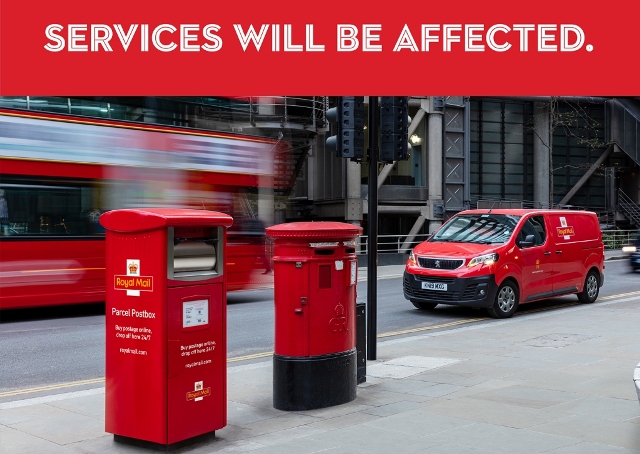The Resistance Grows: Car Dealers Fight EV Sales Quotas

Table of Contents
Dealership Concerns and Objections
Dealerships are facing numerous obstacles in meeting the ambitious EV sales quotas imposed by manufacturers. These challenges threaten their profitability and operational models, fueling the resistance.
Lack of Infrastructure and Consumer Demand
The transition to EVs presents significant infrastructural hurdles. Dealerships are struggling to keep pace with the demands of selling and servicing electric vehicles.
- Limited Charging Infrastructure: Many dealerships lack the necessary charging infrastructure to support EV sales. Installing fast-charging stations requires substantial investment and specialized expertise.
- Consumer Hesitancy: Range anxiety, long charging times, and the higher initial cost of EVs remain significant barriers to consumer adoption. Many potential buyers are still hesitant to make the switch.
- Limited EV Model Availability: The variety of EV models available to dealerships is often limited, restricting their ability to cater to diverse consumer preferences and needs. This further hampers sales.
High Investment Costs and Training Requirements
Adapting to the EV era requires substantial financial commitment from dealerships. The costs are far from negligible.
- Charging Station Installation: Installing fast-charging stations, even a modest number, can cost tens of thousands of dollars per station, excluding the ongoing electricity costs.
- Employee Training Programs: Dealerships need to invest heavily in training their sales and service staff on the unique aspects of EVs, including battery technology, charging systems, and specialized repairs. This requires dedicated time and resources.
- Inventory Management Systems: Managing EV inventory requires new systems and processes to track charging cycles, battery health, and other specific EV-related data, adding further costs.
Impact on Profit Margins and Existing Business Models
EV sales often come with lower profit margins compared to traditional gasoline-powered vehicles. This significantly impacts dealerships' bottom line.
- Lower Profit Margins: The lower cost of operating and maintaining EVs translates to slimmer profit margins for dealerships, particularly when considering the substantial upfront investment required.
- Potential Displacement of Sales Staff: The shift to EVs might lead to the displacement of sales staff specialized in internal combustion engine vehicles, further impacting dealerships. Reskilling and retraining are crucial but also costly.
Automakers' Perspective and Strategies
Automakers are pushing for aggressive EV adoption driven by environmental regulations and growing consumer interest in sustainable transportation.
The Push for Electrification and Environmental Goals
The pressure to meet stringent emissions regulations is forcing automakers to prioritize electric vehicle production and sales.
- Environmental Regulations: Government regulations worldwide are increasingly stringent, forcing automakers to rapidly increase their EV production and sales to avoid penalties.
- Growing Consumer Demand: Consumer demand for EVs is rising steadily, driven by concerns about climate change and the desire for cleaner, more efficient transportation.
Incentive Programs and Support for Dealerships
Automakers are aware of the challenges faced by dealerships and are implementing various incentive programs to encourage EV sales.
- Financial Incentives: Many manufacturers are offering financial incentives, such as rebates and subsidies, to help dealerships offset the costs of installing charging infrastructure and training staff.
- Marketing and Sales Support: Automakers are providing marketing and sales support programs to help dealerships promote EVs and reach a wider audience. However, the efficacy of these programs varies greatly.
Potential Outcomes and Future Implications
The conflict between automakers and dealerships over EV sales quotas is poised to have far-reaching consequences.
Negotiations, Lawsuits, and Industry Restructuring
The ongoing tension could result in several outcomes, from extensive negotiations to potential legal battles.
- Legal Battles: Dealerships might resort to legal action to challenge the imposed quotas, potentially leading to lengthy and costly lawsuits.
- Industry Restructuring: The conflict might force a significant restructuring of the automotive industry, potentially leading to the consolidation of dealerships or the emergence of new business models.
Impact on EV Adoption Rates and Consumers
The conflict has the potential to significantly impact the rate of EV adoption and the consumer experience.
- Delays in EV Market Penetration: The resistance from dealerships could delay the widespread adoption of EVs, hindering the progress toward a cleaner transportation sector.
- Impact on Consumer Pricing and Accessibility: The challenges faced by dealerships might translate to higher prices or limited availability of EVs for consumers, slowing down the transition to electric mobility.
Conclusion
The battle over EV sales quotas highlights the significant challenges faced by car dealerships in adapting to the rapidly evolving automotive landscape. The high investment costs, limited infrastructure, and lower profit margins associated with EVs are creating considerable tension between dealerships and automakers. The outcome of this conflict will significantly impact the future of the automotive industry, the rate of EV adoption, and ultimately, the consumer experience. Stay informed about the ongoing developments in this crucial issue. Further research into the complexities of "Car Dealers Fight EV Sales Quotas" is vital to understanding its implications for the future of sustainable transportation.

Featured Posts
-
 Ufc Vegas 106 Fight Card Burns Vs Morales Odds And Expert Predictions
May 19, 2025
Ufc Vegas 106 Fight Card Burns Vs Morales Odds And Expert Predictions
May 19, 2025 -
 Philadelphia Union Defeat Orlando City In Home Opener
May 19, 2025
Philadelphia Union Defeat Orlando City In Home Opener
May 19, 2025 -
 Royal Mail Urges Ofcom To Streamline Regulation
May 19, 2025
Royal Mail Urges Ofcom To Streamline Regulation
May 19, 2025 -
 Epithesi Me Maxairi Sto Epomeno Epeisodio Toy Tampoy I Tyxi Tis Marilenas
May 19, 2025
Epithesi Me Maxairi Sto Epomeno Epeisodio Toy Tampoy I Tyxi Tis Marilenas
May 19, 2025 -
 Deb Haaland Enters New Mexico Governors Race
May 19, 2025
Deb Haaland Enters New Mexico Governors Race
May 19, 2025
